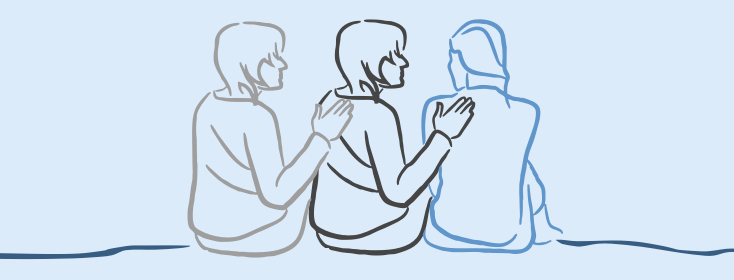Compassion Fatigue: A Caregiver's Fight
Before my husband’s fight with cancer, I never heard of Compassion Fatigue. Then again, I was never faced with being the caregiver of a spouse with a life-threatening disease. Compassion Fatigue is also known as Secondary Traumatic Stress, and can be seen in the gradual lessening of compassion over time. Caregivers can be faced with symptoms that are similar to depression like hopelessness, constant anxiety, decrease in interest, feelings of self-doubt, decrease in focus, and an overall negative attitude.
Guilty conscience
I experienced a lot of the feelings listed above along with guilt. I felt guilty for feeling tired or frustrated with caring for someone when they’re the one fighting the disease. How dare I feel this way when I’m not the one with cancer? Why do I feel this way when I love this person more than anything and I want to take care of them? Just like the patient gets sick of being sick, we get (and are allowed to) feel sick of caregiving. These feelings make you human and normal.
Recognizing fatigue
First I had to recognize that I was experiencing this type of fatigue. My husband said, “You used to be nicer to me”. I never resented him, but perhaps my frustration at our situation was spilling out into our relationship. If the cancer wasn’t going away, how can I help not feel so burdened by it?
How therapy can help
Seeking a therapist can be a great way to have a safe outlet to work with you. I found a fantastic counselor who specializes in people and families facing chronic/terminal illnesses. I had a dedicated time once a week that I could complain, cry, get angry, and just feel for myself. No one will ask how the cancer patient is first; they ask how YOU are doing first. It’s given me time to make myself a priority and help me learn some coping and communication skills that I applied to our relationship and John’s cancer diagnosis.
Letting others help
For much of John’s diagnosis, I felt I needed to do everything and be a superhero caregiver. We didn’t have kids and if caregivers with children could cope, I felt I should be able to do it alone. I put an unnecessary burden on myself. Sometimes it’s hard to figure out how people can best help us too. When John switched from targeted therapy to chemo, I finally asked everyone for help. If you or your loved ones live out of town, ask for restaurant gift cards. Local people can help stock your freezer with meals that can be reheated. Ask for money for house cleanings. Even switch your grocery shopping to delivery.
Bottom line is honesty can really help. Caregivers are allowed to feel overwhelmed and tired just like our loved ones who are facing cancer. It helped me to be more open, honest, and vulnerable with my husband about my feelings, and then also to be honest about needing help. It allowed me to go back to being the awesome caregiver I knew I was.

Join the conversation